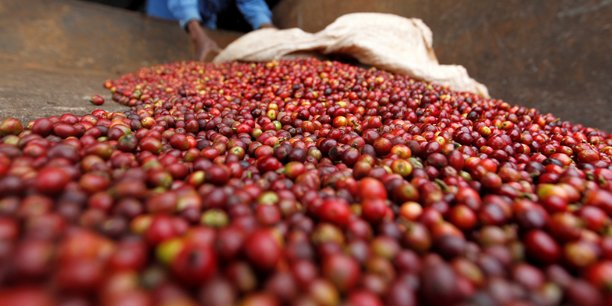Burundi has a rich tradition of coffee growing. It offers ideal mountainous terrain and a climate conducive to the production of high-quality Arabica beans. From the meticulous work of the farmers to the expert preparation by baristas, let's discover the journey of Burundian coffee.
Growing coffee in burundi
Coffee is one of Burundi's main exports, representing a major part of its economy. Most coffee is produced by small farmers, who often own less than a hectare of land. These family plantations are scattered across the highlands, offering a picturesque view of coffee trees stretching across the hills.
The life cycle of the coffee plant
The Burundian coffee plant is mainly of the Arabica variety, renowned for its complex aromas and mild acidity. The growing season begins with flowering, followed by the formation of green coffee "cherries". As they mature, these cherries take on a bright red hue, indicating that they are ready to be harvested. Harvesting is an intense period, when farmers pick cherries one by one by hand.
Treatment and processing
After harvesting, the cherries go through several stages. The most common processing method in Burundi is the wet process, which involves removing the pulp and fermenting the beans before drying them. This process brings out the lively, fruity notes characteristic of Burundian coffee.
The productivity challenge
While Burundian coffee is renowned for its quality, the industry faces a number of challenges. Small plantations, aging coffee trees and limited access to inputs often hamper productivity. In addition, fluctuations in the world market have a considerable impact on Burundi's coffee sector.
A move towards specialization
To counter these challenges, a movement of specialty coffees is developing in Burundi. Some producers are adopting sustainable farming practices, aiming for superior quality production and creating direct relationships with international roasters. This approach can bring greater financial rewards and secure a future for Burundi's coffee industry.
The emergence of cafés in Bujumbura
Alongside the work carried out on the plantations, a dynamic coffee culture is developing in Burundi's urban centers. Coffees such as Buja Café celebrate the country's coffee and the art of Burundian baristas. These cafés offer far more elaborate experiences than just traditional Burundian coffee drinking.
Customers can sample single-origin coffees, discover different preparation methods and explore creative coffee drinks. These establishments serve as community spaces, attracting coffee connoisseurs, entrepreneurs and coffee lovers alike.
Conclusion
The history of coffee in Burundi is intrinsically linked to the country's development. Although faced with challenges, the coffee sector demonstrates resilience and growth potential. Changes in cultivation practices, higher added value and the emergence of refined coffees are opening up new opportunities for Burundian coffee, both on the local and international markets.
Photo © Reuteur


There are no reviews yet. Be the first one to write one.